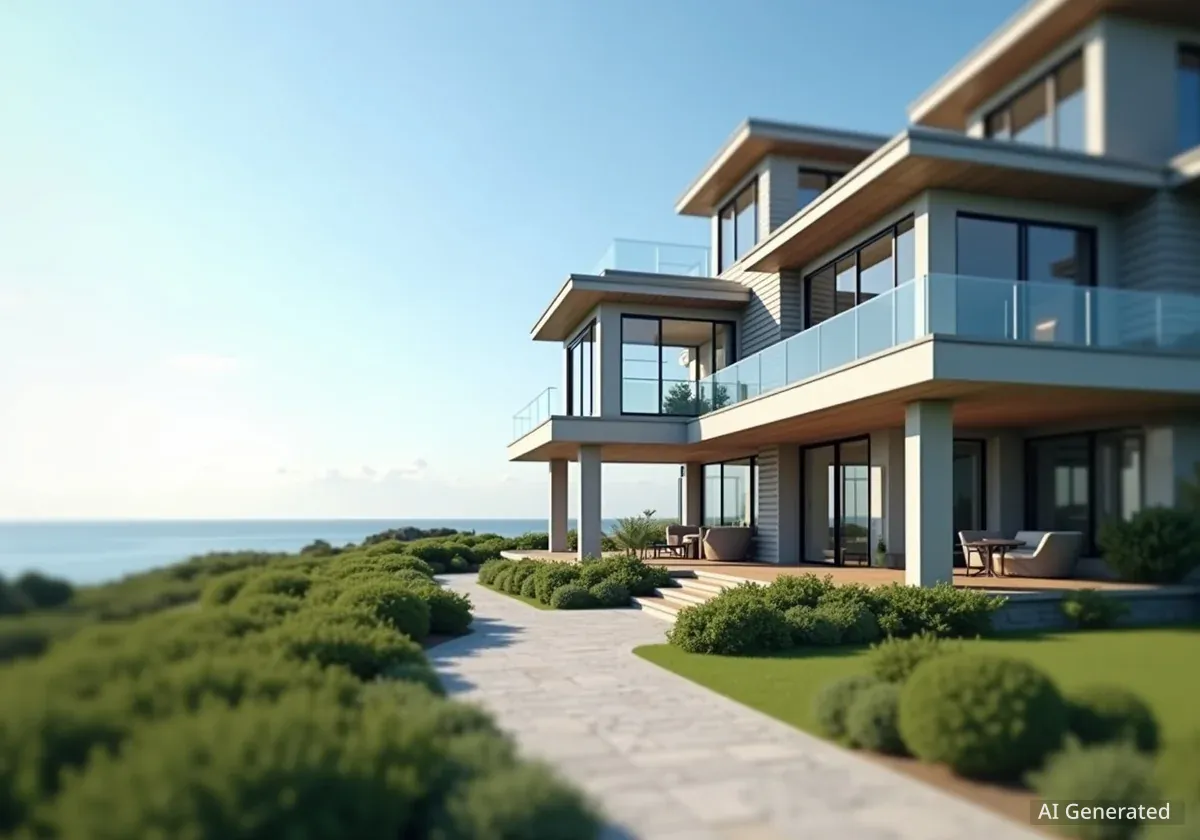Rhode Island is set to implement a new property tax surcharge on July 1, 2026. This tax will affect second homes valued at $1 million or more. The new measure, officially named the Non-Owner Occupied Property Tax, targets properties not occupied by their owners or long-term renters for at least 183 days per year. It aims to address housing affordability and revenue needs in the state.
Key Takeaways
- New tax applies to second homes valued over $1 million.
- A surcharge of $2.50 per $500 in value above $1 million.
- Effective date is July 1, 2026.
- Properties occupied less than 183 days annually are subject to the tax.
- The tax has been unofficially called the "Taylor Swift Tax" on social media.
New Surcharge Details and Impact
The Non-Owner Occupied Property Tax will introduce an additional charge. This charge is $2.50 for every $500 of property value that exceeds the first $1 million. For example, a property valued at $1.5 million would incur an annual additional tax of $2,500. A $3 million property would see an extra $10,000 in annual taxes.
This policy primarily targets affluent areas popular for vacation homes. The state hopes to generate significant revenue from these properties. Many second home owners come from outside Rhode Island, particularly from nearby states with higher purchasing power.
Tax Calculation Example
- Property Value: $1,500,000
- Taxable Amount (above $1M): $500,000
- Surcharge Rate: $2.50 per $500
- Annual Additional Tax: ($500,000 / $500) * $2.50 = $2,500
The "Taylor Swift Tax" Nickname
On social media, the bill has gained the nickname the "Taylor Swift Tax." This is due to pop star Taylor Swift owning a substantial property in Westerly, Rhode Island. While Swift has no direct involvement in the tax's creation, her $17.75 million mansion would be significantly impacted.
Under the new rules, Swift could face an additional annual property tax of approximately $136,000. This high-profile example has brought considerable public attention to the new tax measure.
"If you want to be here, you’re going to have to pay an extraordinary house price for the house anyway. This [tax] is just another cost associated with purchasing a vacation home." — Gordon King, Newport Real Estate Agent
Rhode Island's Second Home Market
Rhode Island is a popular destination for second homes, especially its coastal towns. Data from RIHousing in 2022 showed that about 70% of homes in Westerly were used for "seasonal, recreational or occasional use." This figure is more than double the state's average for that year.
The Real Estate Institute of Rhode Island reported that in 2024, nearly one in four residential transactions involved buyers from other states. For luxury homes priced at $1 million or more, this share increased to almost two in five buyers. Many of these buyers originate from Boston, New York, or Connecticut.
Market Dynamics
Out-of-state buyers often have greater purchasing power and broader search areas. This dynamic contributes to a competitive market with a limited supply of properties. The result is a higher frequency of multiple offers, which drives up median and top-tier home prices in popular areas.
The median home price in Westerly is currently around $525,000, according to Redfin. This is lower compared to other popular second home locations in Rhode Island. For instance, Newport, known for its historic mansions, has a median home price of approximately $854,000. In Jamestown, the median price for homes approaches $1.6 million.
Industry Concerns and Support
The new tax has generated mixed reactions. Chris Whitten, president of the Rhode Island Association of Realtors, expressed concerns. He believes the "Taylor Swift Tax" will be "detrimental" to current homeowners and potential new buyers.
Whitten mentioned hearing reports from other realtors whose clients are now removing Rhode Island from their lists of potential vacation home locations. He stated, "We’re seeing [this] quite drastically across the board. Why would you want to invest in a second home here in Rhode Island when you know you’re going to be paying a lot more taxes?" He fears this could drive tourism dollars out of the state.
Long-Term Market Outlook
Gordon King, a long-time real estate agent in Newport, shares similar concerns about the short-term impact on the second home market. However, King predicts that the tax may not have significant long-term effects in areas like Newport. He believes buyers willing to pay high prices for luxury homes will view the tax as just another cost.
This is not the first time a similar tax has been proposed. In 2015, then-Governor Gina Raimondo introduced a version of this bill. It faced strong opposition and did not pass. King suggests the current tax gained more support due to a stronger market and higher demand for properties.
"Today, inventory is low, demand is high," King noted. He added that the state faces budget problems, making it easier for politicians to tax non-voting property owners.
Impact on Short-Term Rentals
The new tax could also affect owners who rent their second homes on platforms like Airbnb. An Airbnb spokesperson stated that the company cannot speculate on the exact impact. However, they noted that hosts adjust pricing based on various factors, including law changes, tourism demand, and the economy.
According to Airbnb, the platform collected about $8.2 million in sales taxes across Rhode Island last year. The spokesperson added, "We believe in fair and balanced laws that meet the needs of local communities while also protecting the ability of Rhode Islanders to share their homes."
Public and Political Support
Despite industry concerns, the "Taylor Swift Tax" has received support on social media. Many comments express sentiments like "tax the rich" and "every state should do this."
State Senator Meghan Kallman (D-Pawtucket, Providence) publicly supported the tax. She wrote on Facebook, "Working [Rhode Islanders] can’t afford a place to live, and I will stand on the side of regular people until I’m six feet underground." This highlights the argument that the tax addresses housing affordability for local residents.
The debate continues between those who see the tax as a necessary step for local housing and revenue, and those who fear its negative impact on the state's real estate market and tourism industry.





